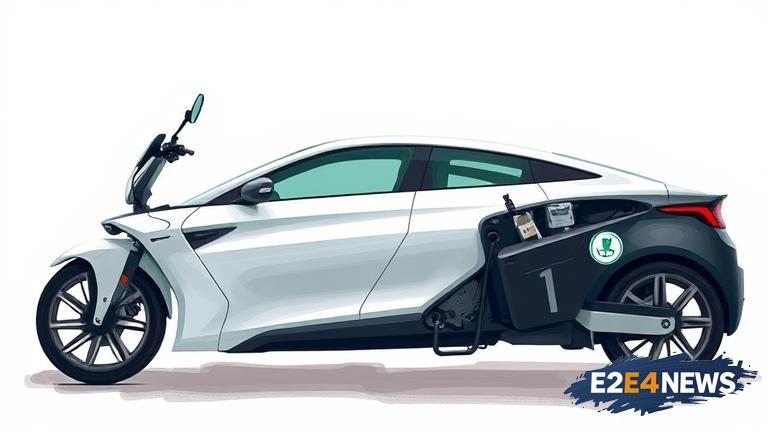The Indian government has announced a comprehensive plan to promote the adoption of electric vehicles (EVs) in the country. The plan includes a range of incentives and initiatives to encourage the use of EVs, including tax exemptions, subsidies, and investment in charging infrastructure. The government aims to have at least 30% of new vehicle sales be electric by 2030. To achieve this goal, the government will provide subsidies to manufacturers to encourage the production of EVs. Additionally, the government will invest in the development of charging infrastructure, including the installation of charging stations along highways and in urban areas. The plan also includes measures to promote the use of EVs in public transportation, such as buses and taxis. The government will provide incentives to state governments to encourage the adoption of EVs in public transportation. The plan also includes measures to promote the use of EVs in private transportation, such as cars and two-wheelers. The government will provide subsidies to individuals who purchase EVs, and will also provide incentives to companies that invest in EV manufacturing. The plan is expected to have a significant impact on the environment, as EVs produce zero emissions and can help reduce air pollution in urban areas. The plan is also expected to have a positive impact on the economy, as it will create new jobs and stimulate investment in the EV industry. The government has set a target of having at least 1 million EVs on the road by 2025. To achieve this goal, the government will need to invest heavily in charging infrastructure and provide significant incentives to manufacturers and consumers. The plan has been welcomed by the EV industry, which sees it as a major opportunity for growth and development. However, some experts have raised concerns about the feasibility of the plan, citing the high cost of EVs and the lack of charging infrastructure in many parts of the country. Despite these challenges, the government is committed to making the plan a success and has set up a task force to oversee its implementation. The task force will be responsible for monitoring progress and providing recommendations to the government on how to overcome any challenges that arise. The plan is a major step forward for India’s EV industry, which has been growing rapidly in recent years. The industry has seen significant investment from major companies, including Tata Motors and Mahindra & Mahindra. The plan is expected to attract even more investment to the industry, as companies look to take advantage of the government’s incentives and subsidies. The plan is also expected to create new jobs and stimulate economic growth in the country. Overall, the plan is a major opportunity for India to reduce its dependence on fossil fuels and promote sustainable transportation. With the right investment and support, the plan has the potential to make a significant impact on the environment and the economy. The government’s commitment to the plan is a major step forward for the country’s EV industry, and it is expected to have a positive impact on the environment and the economy for years to come. The plan is a comprehensive and well-thought-out initiative that takes into account the needs of both manufacturers and consumers. It provides a range of incentives and subsidies to encourage the adoption of EVs, and it invests in the development of charging infrastructure to support the growth of the industry. The plan is a major opportunity for India to promote sustainable transportation and reduce its dependence on fossil fuels. It is expected to have a significant impact on the environment, as EVs produce zero emissions and can help reduce air pollution in urban areas. The plan is also expected to have a positive impact on the economy, as it will create new jobs and stimulate investment in the EV industry. The government’s commitment to the plan is a major step forward for the country’s EV industry, and it is expected to have a positive impact on the environment and the economy for years to come.
